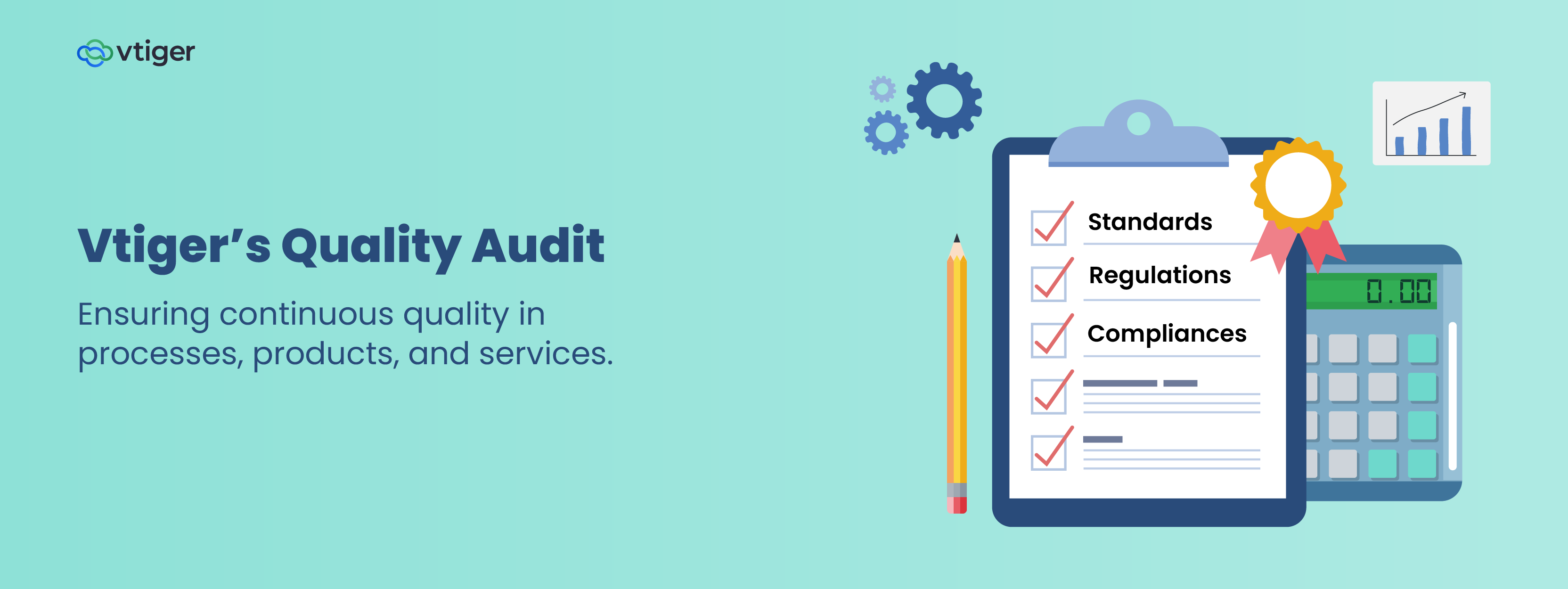ABZ Boutique hotel is well-known for providing quality services. With landscaped gardens, large halls, and multiple cuisines, they are a favorite venue for weddings, conventions, conferences, etc. With an amusement park close by, they also attract families and younger crowds.
During a quarterly review, the management of ABZ observed a dip in the reservations and found two events were canceled. Upon inquiry, it was found that rooms were overbooked, and reservations were not confirmed in many cases leading to cancellations. It was also noted that the quality of the food had decreased, leading to negative comments on social media. This was quoted as the reason for the cancellation of events.
So how could ABZ have avoided these issues? Businesses like ABZ must invest and implement robust quality management processes and technology adoption. Would quality management processes have made a difference? Yes, they would have. Processes like quality audits would have ensured regular inspections of processes and people, thus helping identify errors and maintain consistent services. This blog will discuss the impact of quality management and auditing on a business.
Quality Management
Quality management helps businesses overcome quality challenges. They help you in:
- Standardizing procedures
- Implementing quality metrics
- Identifying gaps, errors, and areas for improvement
- Tracking processes continuously so there is no fall in standards
To ensure your quality management process is implemented successfully, quality audits need to be conducted regularly.
Quality Audit
Quality audit is a systematic process of reviewing and evaluating operations, products, or services to determine whether they meet specific quality standards. Audits are performed by trained auditors who inspect an organization’s processes, procedures, and documentation to ensure they comply with industry standards, regulations, and the business’s own quality standards.
The audit process typically involves the following:
- Planning: This involves defining the scope of the audit, its objectives, and its metrics. It also involves identifying the auditors.
- Auditing: This involves the audit team gathering data, reviewing documents, interviewing staff, and conducting inspections to assess compliance with quality standards.
- Reporting: This involves generating reports about findings, including areas for improvement, errors, and non-compliance.
- Follow-up: This requires the business to take corrective actions based on the audit reports.
Benefits of Quality Audit Process

A quality audit feature in a CRM can help a business in several ways, including:
- Improved quality control: A quality audit feature enables businesses to perform regular quality checks and audits to ensure that products or services meet quality standards. This can help identify and address quality issues before they become bigger problems.
- Better compliance: A quality audit feature can help businesses ensure compliance with industry standards and regulations by providing tools to manage audits and document compliance activities.
- Increased efficiency: By automating quality audit processes, a CRM with a quality audit feature can help businesses save time and reduce manual work, allowing them to focus on other important activities.
- Enhanced brand awareness: A quality audit feature gives businesses real-time visibility into quality performance and issues, enabling them to make informed decisions and take corrective actions as needed.
- Improved customer satisfaction: A quality audit feature can help businesses deliver better customer experiences and increase customer satisfaction by ensuring that products or services meet quality standards.
Since quality audit ensures the above, it also helps businesses identify opportunities for continuous improvement, deliver better customer experiences, and drive business growth.
Are you a CRM user? Does your CRM have a Quality Audit feature?
Some CRMs come with a Quality Audit feature. Using this feature, you can regularly assess and improve the quality of your processes. It can help you identify and address quality problems before they become major issues.
Quality Audit feature in Vtiger CRM
The Quality Audit feature in Vtiger CRM helps you create auditing checklists, perform audits, and record data in the CRM. You can use this data to generate reports to help you review gaps, issues, and shortcomings. The reposts will also help you to improve processes.
Using the Quality Audit feature, you can:
- Define audit templates: Vtiger CRM allows businesses to create customizable audit templates to meet their specific quality standards.
- Schedule audits: Businesses can schedule audits based on specific criteria such as location, product type, or process.
- Execute audits: Vtiger CRM provides tools to execute audits, including checklists, scoring mechanisms, and workflows.
- Track audit results: Vtiger CRM enables businesses to track audit results and monitor performance over time.
- Generate reports: Businesses can generate custom reports on audit results to gain insights into their quality performance and identify areas for improvement.
Since this feature is inbuilt into the CRM, you can store quality-related data. With the aid of Vtiger’s One View and quality data at your fingertips, you can predict problem areas, and develop relevant solutions. Areas like sales and customer support can be improved by putting quality processes in place.
Vtiger CRM’s quality audit feature can help businesses streamline their quality control and assurance processes, ensure compliance with industry standards, and improve their overall quality performance. This can help you improve customer satisfaction, increase repeat business, and ultimately drive profitability.
Are you a CRM user? Would you like to benefit from an easy to use Quality Audit feature in a CRM? Then click here to try Vtiger’s Quality Audit feature today.



